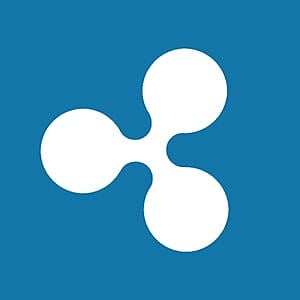[ad_1]
My editors have asked me to cover Polkadot (CCC:DOT-USD) today. It’s my first time discussing this cryptocurrency.

Source: shutterstock.com/nurionstd
Right off the bat, the first thing I notice is that it is the seventh-largest cryptocurrency by market capitalization at $14.88 billion.
Unfortunately, Polkadot’s market cap is $13 billion less than Dogecoin (CCC:DOGE-USD), the sixth-largest crypto according to CoinMarketCap.com.
Which makes me think: Why should I even bother considering DOT? It can’t even outdo a meme coin.
This article attempts to answer that question.
Polkadot Is a So-Called Ethereum Killer
We’re still early in the development of cryptocurrencies. As such, it appears almost anything that isn’t Ethereum (CCC:ETH-USD) is an “Ethereum Killer.” Is there a definition?
Google the words “Ethereum Killer,” and you get 120,000 results. On the first page of searches alone, I get five different cryptocurrencies mentioned in the same breath as Ethereum Killer. One of them being Polkadot.
I decided to do an InvestorPlace search to see how many articles have Ethereum Killer in the headline. I found three on the first page through June 9: Algorand (CCC:ALGO-USD), Polkadot, and Cardano (CCC:ADA-USD).
Since I’m supposed to be discussing Polkadot, I’ll take a quick peek at David Moadel’s recent article about this cryptocurrency.
According to my colleague, Polkadot’s greatest benefit is that it allows for “cross-chain communication and interoperability by bringing multiple blockchains into one network,” Moadel wrote on June 17.
Like most things related to blockchain technology, the verbiage used to describe what’s what is gobbledygook.
That’s not meant as a slight to my colleague but rather a criticism of the powers that be at the major cryptocurrencies. They all do a terrible job explaining their advantages in a way even a 12-year-old could understand.
Garbage in. Garbage out.
Ultimately, Moadel concludes that Polkadot’s greatest strength is the ability to connect different networks and platforms so they may communicate with each other.
For this reason, he likens Polkadot to an “Internet of blockchains” rather than an “Ethereum killer.”
Does that make you want to run out and convert all your DOGE to DOT? Maybe.
It Seems Like It’s Got a Lot of Utility
Every time I write about a cryptocurrency, I make it a point to emphasize that utility is everything in the fight for market cap. No utility. No trillion or billion-dollar valuation.
That’s because, instead of financial metrics and numbers you get with a financial statement, investors are forced to evaluate cryptocurrencies based on very subjective, qualitative information.
With stocks, I’m a big believer in free cash flow (FCF) generation. That’s why I’ve always had a soft spot for the Pacer US Cash Cows 100 ETF (NYSEARCA:COWZ). It provides me with a ready-made list of FCF generators. Companies that I ought to own for the long haul.
I can’t do that with Polkadot. I can, however, assess its utility. From what my colleague’s written, it appears to provide plenty of utility. But so does Cardano, which like Polkadot, was founded by an Ethereum co-founder.
A June blog post from website Stably discussing Polkadot’s parachain auctions does an excellent job explaining Polkadot’s utility:
Polkadot already works the way Eth2 eventually will. Everything that makes Eth2 fast and efficient — Proof-of-Stake consensus, sharing, the Beacon Chain — is already in place in Polkadot. That means projects are escaping from the two issues that plague users of Ethereum: bottlenecks and gas fees.
The fact Polkadot has raised $200 million in DOT sales to fund its blockchain project is an indication of how much potential exists for both its technology and crypto token.
Should You Buy DOT?
I’ll be honest. I’ve yet to buy a single cryptocurrency, so I’m the wrong guy to ask.
What I would say is that it’s definitely a cryptocurrency worth getting to know. Maybe once you’ve done that, you’ll feel confident enough about its utility to actually buy some.
As is the case with most cryptos, time is NOT of the essence. So take your time to understand Polkadot. I know I will.
On the date of publication, Will Ashworth did not have (either directly or indirectly) any positions in the securities mentioned in this article. The opinions expressed in this article are those of the writer, subject to the InvestorPlace.com Publishing Guidelines.
Will Ashworth has written about investments full-time since 2008. Publications where he’s appeared include InvestorPlace, The Motley Fool Canada, Investopedia, Kiplinger, and several others in both the U.S. and Canada. He particularly enjoys creating model portfolios that stand the test of time. He lives in Halifax, Nova Scotia. At the time of this writing Will Ashworth did not hold a position in any of the aforementioned securities.
[ad_2]


